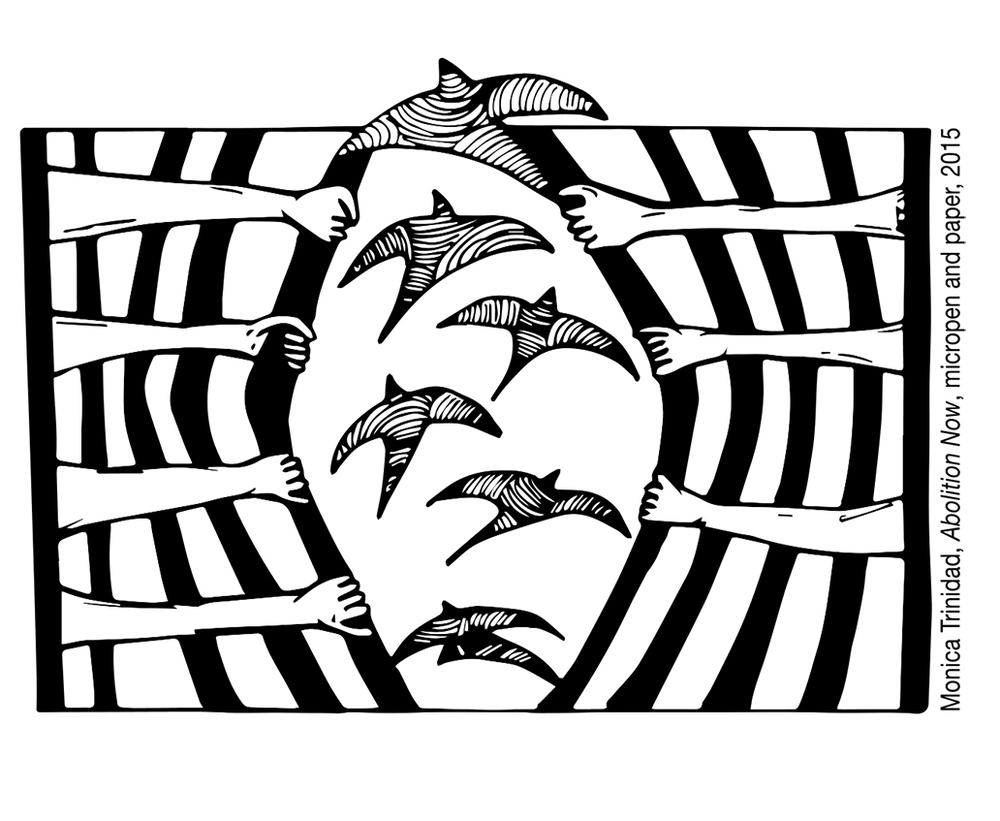
“Abolition examines the interconnected power dynamics across prisons, police, immigration, gendered and sexual violence, environmental justice, disability justice, and more, in order to propose an abolitionist democratic present and future. Professor Toby Beauchamp (Gender and Women’s Studies) and Professor Naomi Paik (Asian American Studies) have been appointed CAS Resident Associates for AY2019-20 in charge of this initiative which includes a public events series and a seminar in Spring 2020 among other activities.” - Center For Advanced Study Website
Toby Beauchamp and Naomi Paik are this year’s resident associates for the Center for Advanced Study’s initiative, Abolition. As Professor Paik explained, “In the past these initiatives…. can be quite theoretical and very academic,” but she and Professor Beauchamp had “big, bold ideas”that were extremely appealing to Masumi Iriye, the Deputy Director for the Center for Advanced Study. Paik and Beauchamp wanted their initiative to be more accessible to the public, [to] multiple publics, not just academics.”.
In fact, abolition has been a topic of interest of Professors Paik and Beauchamp for a few years now. Paik explained that she and Beauchamp had been talking about co-teaching a course on abolition for a couple of years.. “But it’s so hard to co-teach on this campus,” Paik says, “because it’s seen as a bad value... paying two faculty to teach the same class.... So, I think this is our one opportunity to do it...we gotta ...seize our moment!”
Seizing the moment is in fact exactly what Beauchamp and Paik are doing. Their first event took place on September 18, 2019: Shrinking the Prison Industrial Complex: Strategic Abolitionist Organizing in the 21st Century with speaker professor Mariama Kaba in GWS, and did very well. Two more events will occur this fall. The Abolition initiative is off to a great start with exciting things to come through the Fall and Spring semesters.
Being chosen as the two resident associates provides Beauchamp and Paik with a number of extraordinary opportunities. In addition to co-teaching an advanced graduate seminar on the topic of Abolition, Paik and Beauchamp are also able to bring “people who are doing deep work on abolition to campus” as well as “people who are doing community organizing and ...performance work around abolition.” Paik and Beauchamp want to “show the range of how people are engaging the concept.”
It was important to Professors Beauchamp and Paik to fund and support people who are doing work outside of the university. As Paik explained, “This initiative also comes with a pretty significant programming budget. It’s actually well-funded and so this is an opportunity to funnel resources from the university to people who are actually doing work on the ground…. it’s not just about giving good stipends to people who already have good jobs and tenured faculty. It’s about people who are...grinding it out, because this kind of work [the unpaid or underpaid] supports the other work…. I think that is an important objective for us.” Paik and Beauchamp see funding artists like Monica Trinidad, for instance, as a way to acknowledge the crucial work people are doing outside the academy.
Beauchamp also said that this objective is, “relevant to the theme of abolition too because our university already diverges resources to... gentrification [such as] tech companies that are involved in immigration detention and surveillance mechanisms. And so this was an opportunity for us to not only talk about the ideas about abolition and what people are doing but also to ensure that the university participates in sourcing those ideas and that kind of work.” Beauchamp also elaborated on our awareness of what the university funds and gives money to and how, “if we’re going to do this series and make it,... something real, then part of that is about thinking about where the university puts its funding and support.” For Beauchamp and Paik, this “diversion of resources is a part of the ethics of the whole series too.”
Written by Taylor A. Mazique